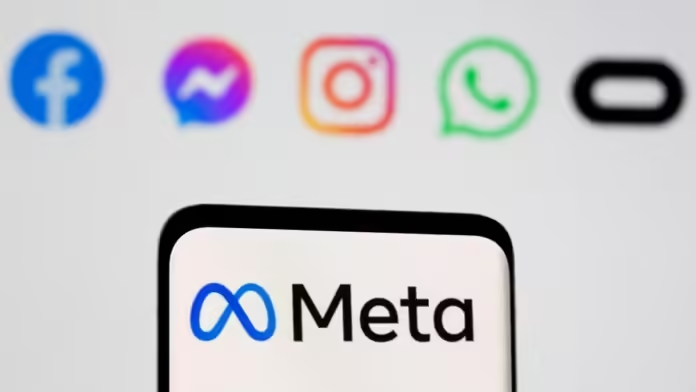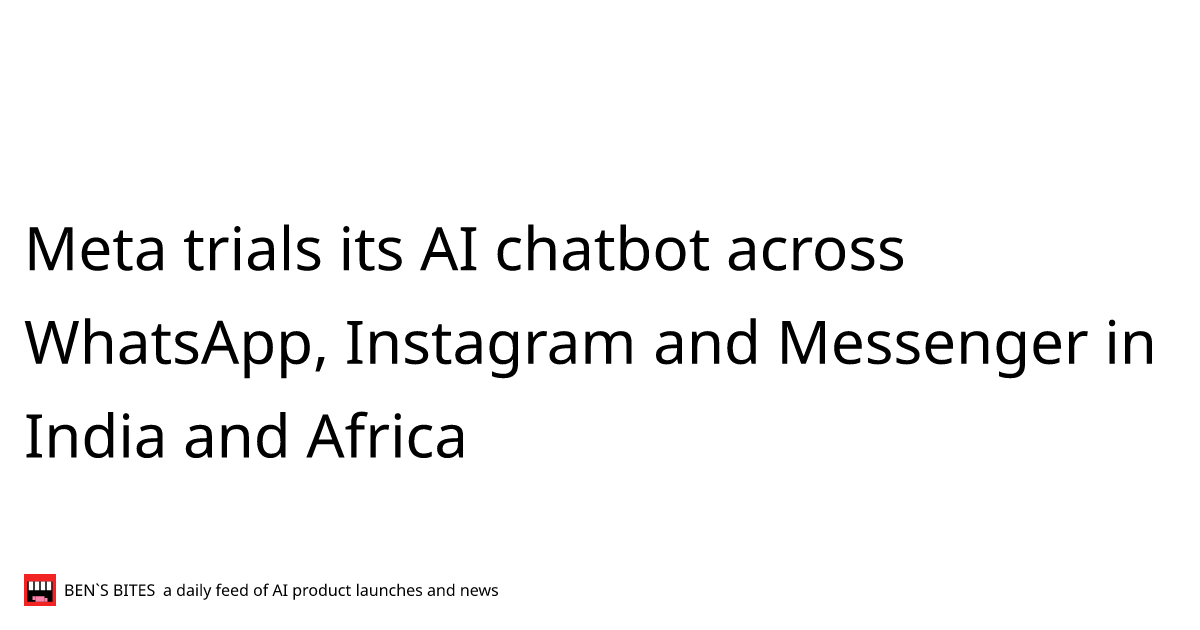TechCrunch demonstrated that Meta is conducting tests on its huge language model-based chatbot, Meta artificial intelligence, with consumers of WhatsApp, Instagram, and Messenger in India and some regions of Africa. This action demonstrates Meta’s intention of expanding its artificial intelligence capabilities by reaching large user bases across all its products.
In the aftermath of substantial artificial intelligence efforts from other significant technology firms, such as OpenAI, the social networking giant has been rushing to launch further artificial intelligence services.
In February 2023, Meta revealed plans to develop and test chatbots and other artificial intelligence (AI) devices. India is one of the organization’s most significant markets; with over 500 million WhatsApp and Facebook subscribers, it is the country where users have most recently noticed the appearance of the Meta artificial intelligence chatbot.
Facebook also aims to test additional features for reaching viewers in developing regions, where smartphone users are increasing more quickly than in established areas like the United States, where development has peaked. Additionally, users across Africa reported seeing Meta Artificial Intelligence on WhatsApp.
WhatsApp in Nigeria includes Meta Intelligence.
Meta released an official statement confirming the change. According to a Meta representative who spoke with TechCrunch, we are currently testing a variety of the company’s generative AI-powered applications in a restricted public role while they are in various stages of production.
In September 2023, Meta revealed Meta AI, its all-purpose helper. The AI chatbot’s features include the capacity to produce lifelike graphics in response to written signals and the capability to respond directly to consumer inquiries during chats. There is proof that online search inquiries are also utilized on Instagram.
Meta was slow to develop and provide its consumers with AI technologies. Its researchers believed, partly in some way, that generative AI technology was not almost ready for widespread use. OpenAI put MetaAI on the defensive by explicitly demonstrating it to be false.
Announcing early this week at an “AI Day” that the firm arranged for its headquarters in London, Yann LeCun, the lead Intelligence researcher at Meta and author of the Turing Award, claimed that ChatGPT’s accessibility had suddenly caught the public’s interest and excitement. For those like me, ChatGPT did not surprise me in terms of modern technology or system efficiency. It was the level of attention that it attracted. That took everyone off. It also caught OpenAI off guard. According to Meta’s attempts to introduce them, artificial intelligence chatbots were not very welcomed; in particular, he clarified several of these were destroyed by users. He now characterized the business as more transparent and content with publishing models, as did the more significant information technology industry.
And Meta is currently doing exactly this. However, three more practical explanations exist for why Meta might be moving forward with its AI plan.
Firstly, consumers are asking for and anticipating artificial intelligence features in applications, so if Meta doesn’t provide them, they fear customers will leave. It is essential for maintaining customers.
In the technology industry, investors need evidence of Meta’s commitment to supporting and developing future generations of computing and substantial earnings, as this is crucial for shareholder loyalty.
Third, for self-satisfaction, it has been leading the way in fields such as social networking, mobile apps, and advertisement for the past ten years, and it boasts exceptional talent on staff, including renowned Intelligence scholar Yann LeCun. Is it genuinely going to overlook everything and jump the shark?
The enormous worldwide user bases of Instagram and WhatsApp—which represent hundreds of millions of monthly active users—undoubtedly give Meta a unique chance to grow its artificial intelligence services. The Facebook-owned company can potentially dwarf its competitors’ reach—at least theoretically—by showcasing its sophisticated language model and picture-generating capabilities to a vast audience by integrating Meta AI into WhatsApp and Instagram.
The business also said early during the week that it plans to release Llama 3, its upcoming central language model, during the coming month.
More information was added to the story, along with the info that Meta is testing its artificial intelligence in addition to WhatsApp, Instagram, and Messenger.






